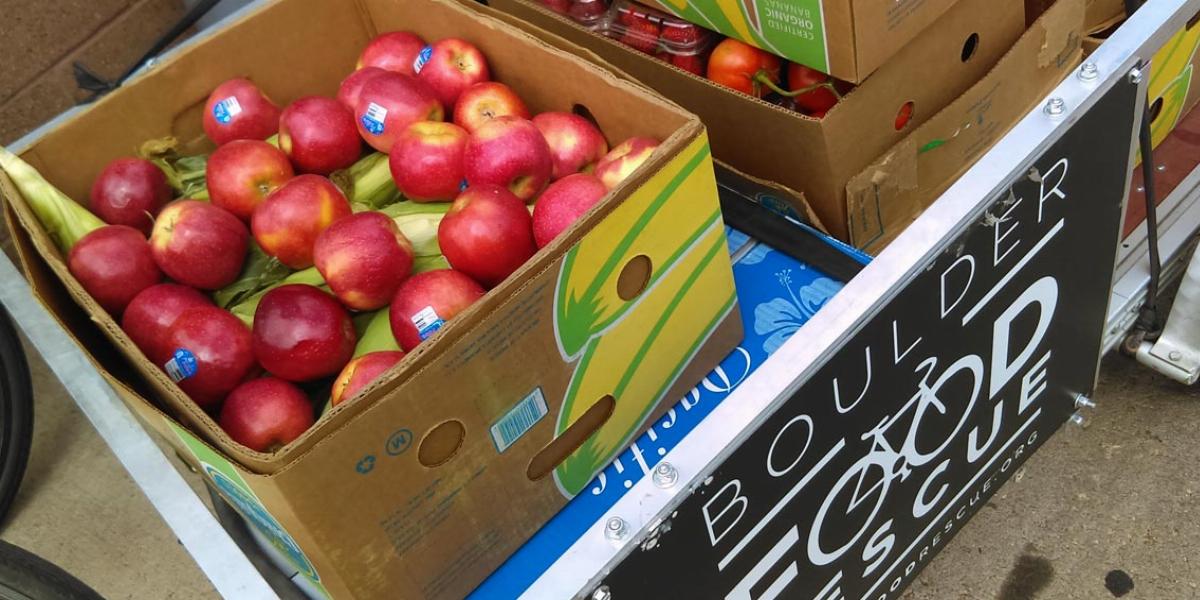
With 30 to 40 percent of all food in the United States ending up in landfills, food waste is a growing concern for both businesses and homeowners. This problem is especially pronounced for businesses that serve food. Recycling Works estimates restaurants create roughly one ton of wasted food for every 4,000 meals served.
Thankfully, organizations like Boulder Food Rescue are stepping in to stop the cycle of food waste in their communities. Volunteers and employees save unspoiled produce from farms, grocery stores and restaurants that would otherwise be tossed in a dumpster and donate it to organizations that support food-insecure and low-income families.
Starting as a small non-profit in 2011, Boulder Food Rescue has grown into a powerful force for feeding the hungry. About 81 percent of all food donations are picked up via bike trailers and cycled directly to one of their recipient sites. Any donated food is used within 48 hours, ensuring that individuals and families receive fresh produce that would normally be out of reach.
“Boulder Food Rescue is focused on picking up healthy food, such as fruits and vegetables and setting up regular weekly pickups. If a business has irregular donations, BFR can refer them to the best appropriate recipient site for them to drop the food off.”
Hayden Dansky | Executive Director, Boulder Food Rescue
The just-in-time rescue model at BFR focuses on pre-scheduled produce pickups, mostly done via bike carts throughout the city.
Boulder Food Rescue works to create custom partnerships designed to meet the needs of both the food business and the community. Dansky says they look for businesses who can provide consistent weekly pickups of healthy food when partnering with BFR.
They focus on produce since many of their partner agencies don’t have access to fresh fruits and vegetables. Most pantries accept donations of non-perishable items like canned soup cans and boxed dinners, so having a source of fresh items allows them to provide balanced nutrition to families in need.
Once a partnership is established, donors can set aside fruits and vegetables in specially-marked boxes for food rescue volunteers to pick up and sort on a regular schedule. This advanced scheduling sets Boulder Food Rescue apart from other programs, letting food partners know when to expect a delivery and making it easier for bicyclists to plan their routes. Volunteers log the weight and types of food that they pickup, helping BFR keep accurate records of their impact.
To date, the team has kept nearly 2.4 million pounds of usable food out of landfills in Boulder.
Even if you don’t operate a food business, you can still help prevent food from ending up in a landfill. “Most food waste happens at home,” explains Dansky. There are several things that homeowners can do to reduce food waste – and save money.
Need more inspiration on how to curb food waste? Read our guide to composting at home or learn how to start your own food rescue program based on BFR’s model.
This is part of a Dumpsters.com series highlighting organizations working to revitalize and better their community. If you are in the Boulder or Denver area, learn how you can help support local food rescue programs.
